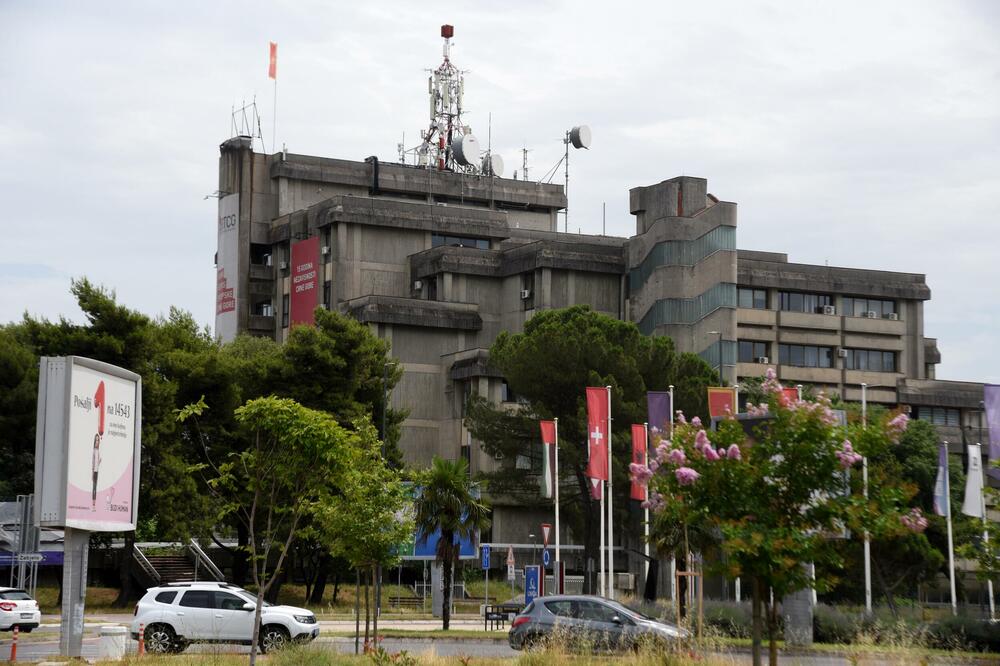At today's session, the Council of Radio Television of Montenegro (RTCG) adopted by a majority of votes the new Code of Ethics of the public service, which, among other things, prohibits additional work for employees of other employers without consent.
Also, journalists and creative staff are prohibited from appearing in advertisements with their voice or face, except when that work is performed voluntarily as part of humanitarian actions or if they have special approval from the general director.
According to the adopted code, an employee cannot be prohibited from expressing a critical value judgment, if he is able to prove that he spoke the truth in his public appearance...
Lawyer Irena Vešović said that a three-member commission worked on that document - one member each of the Council and management and a union representative.
"We discussed, among other things, the rights and obligations of RTCG employees, defined the prohibition of discrimination, conflict of interest, public appearances, which is very important, how employees should act during public appearances and how to protect the reputation of RTCG, we accepted the suggestion and defined an ethics committee that consists of two representatives of the management, a representative of the trade union and the Council and one independent person... Responsibility for violating the code, based on the opinion of the ethical committee, is initiated by the general director, in accordance with the Labor Law," Vešović said.
The Vice-President of the Council, Marijana Camović Veličković, assessed that the formation of the ethics committee is a deprivation of competence from the Council, another in a series, while the member Milica Špajak welcomed the formation of that body.
Council member Filip Lazović, who participated in the drafting of the document, said that he believes that the work was done correctly, but that he would like his colleagues to get involved and improve the document.
Camović Veličković asked in what way the code will apply, as stated in it, to freelancers and what happens if they violate the work obligation, judging that it is illogical to proceed against them, and Vešović explained that they would certainly not be able to be disciplinary responsible, but they are of the opinion that they would define that type of responsibility for them in the rules of procedure on the work of the ethics committee itself.
The Vice-President of the Council said that Article 13 defines that employees, journalists and creative staff may not use their voice and image to appear in economic advertising messages, unless that work is performed voluntarily as part of humanitarian actions in which RTCG participates or if they have a special approval of the general director.
She believes that there is room for abuse in that article because it is allowed to arbitrarily decide on it.
The President of the Council, Veselin Drljević, said that as a long-time journalist, he believes that employees should not work outside the parent company and have any kind of engagement, because it goes against the standards and that it should not be approved by the general director either.
Camović Veličković pointed out that Article 14 paragraph 1, according to which employees are not allowed to be professionally engaged by other persons in tasks within the scope of work of RTCG, is also disputed. "It goes beyond the scope of the employer's jurisdiction... If someone works eight hours in the RTCG, he can do whatever he wants after that, unless the loyalty clause is defined in the contract according to the labor law and according to those who have specific knowledge," she believes.
Camović Veličković also questioned the fact that, according to the Code of Ethics, the expression of a critical value judgment can be prohibited if, according to the employer's assessment, he is unable to prove that he spoke the truth in his public appearance, which also applies to social networks. She asked who is testing the employee to see if he was telling the truth and if that means that he can be investigated for every status on Facebook...
Camović Veličković said that according to the new code, an employee may not publicly disclose information that is the subject of a court decision, especially those related to ongoing court proceedings.
"Does this mean that someone is not allowed to talk about the court case against Boris Raonic or that he is not allowed to tell his union representative about the court case he initiated... Are 800 employees not allowed to comment that Raonic was illegally elected or else he will be fired," Camović Veličković asked.
The Council adopted the proposal to delete that part of the provision, and that employees may not disclose to the public information that has been determined as a business secret.
Bonus video:




